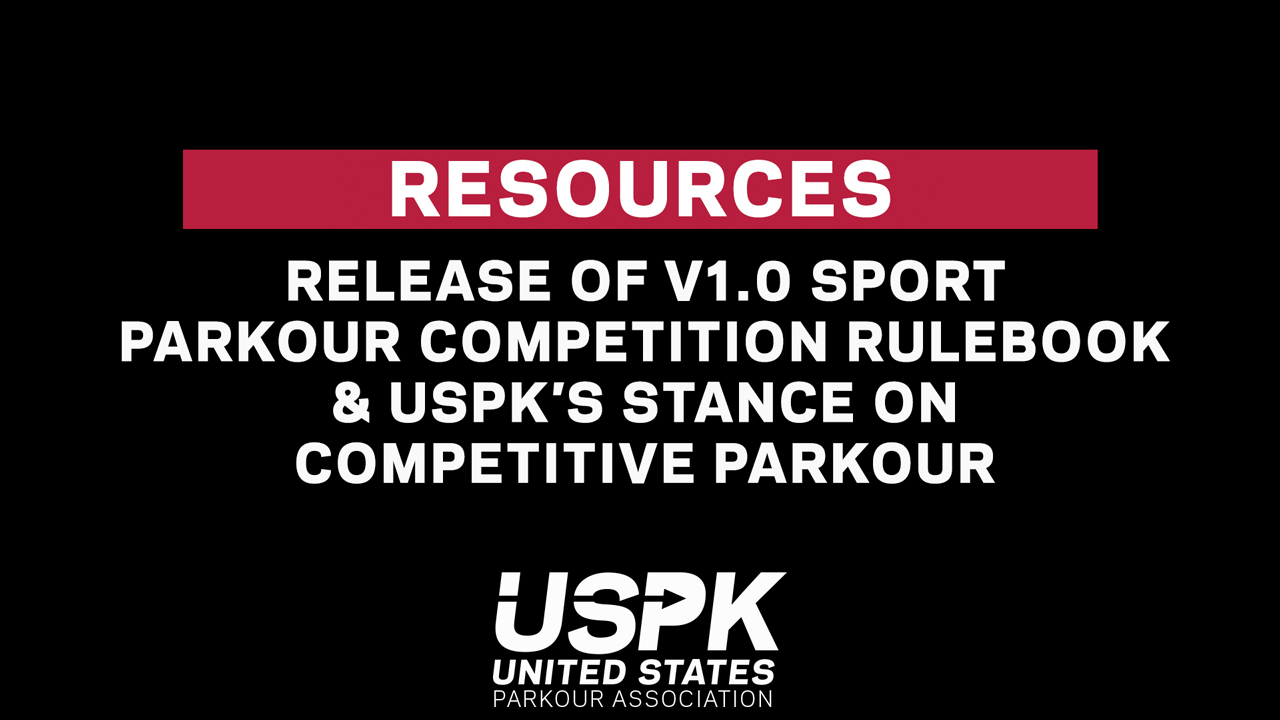
UNITED STATES PARKOUR ASSOCIATION
Release of v1.0 Sport Parkour Competition Rulebook and USPK’s Stance on Competitive Parkour
2021 APR 09TH 04:00PM EST
United States Parkour Association (USPK) is excited to announce the release of select rules within the USPK Sport Parkour Competition Rulebook v1.0. The rulebook is intended to provide an orderly and consistent administration of sport parkour events for our members and organizations. These rules are designed to set forth an organizational standard set of guidelines within which parkour athletes can participate in events and compete in a positive atmosphere of equal opportunity and most importantly, safety. The rules are intended to:
- to promote and maintain fair sportsmanship, equal opportunity, and competitive play
- to protect the health, safety, and well-being of all participants
- to promote the integrity of sport parkour as a growing space within the parkour community
We hope this can be a valuable resource for existing sport parkour leagues, community leaders running local established events, or anyone looking to start their own parkour competitions in the U.S. We encourage all those involved in sport parkour competitions, including organizations, athletes, coaches, judges, and volunteers, to thoroughly examine the rulebook. We have designed these guidelines with maximum flexibility in mind; USPK advocates for constant improvement and is open to feedback and issues concerning the clarity of the rules and format. Our goal is not to force rules and regulations on the parkour community, but to establish a solid baseline for what has (and hasn’t) worked for parkour competitions over the years. This adds legitimacy to parkour’s development as a sport and helps shield it from potential hostile appropriation efforts by other sporting organizations.
The v1.0 of this document was made possible by consulting with numerous community members that have years of experience organizing and holding successful, fun, and safe competitions. We would like to thank Tom Coppola, Brandon Douglass, and Dylan Polin for their guidance and direction on the early drafts of this rulebook. Each individual shared their wealth of experience leading, organizing, and competing in sport parkour events. We recognize the great work they have put forward that helped to build a pillar of the USA and North American sport parkour community. Our deepest appreciation extends to the USPK Competition Committee. This rulebook wouldn’t have been possible without the committee’s organization that allowed the rulebook to develop. We owe our gratitude to those who contributed to the success of the physical creation to completing the sport parkour rulebook including Travis Lee, Seth Rujiraviriyapinyo, and Alan Tran (Committee Lead).
At this time we also feel it’s important to discuss not just our motivations for releasing this rulebook, but also our views on competitive parkour as well. USPK is decidedly pro-competition, but let’s break that down further as it is not as polarizing as it sounds. “Pro-competition” in this sense refers to our acknowledgment that professional parkour competitions will happen with or without any parkour community buy-in as we’ve seen with the FISE competitions. Our view is that the community is better served by having actual parkour practitioners, organizations, and businesses help shape that structure and is representative not only of parkour movement but of the culture as well. We also see that external organizations can learn a great deal in building better competitive environments by ensuring that parkour keeps its uniqueness, putting parkour practitioners first, and promotes the values of our movement. “Pro-competition” does NOT mean we’re against parkour’s non-competitive roots; we recognize that at its essence parkour is non-competitive (except perhaps mentally with oneself) and traceurs should be free to practice how they choose. Similar to how skateboarding is still a largely solo practice that now has designated parks, professional competitions, and even Olympic representation, the vast majority of skateboarding is still non-competitive in nature.
In parkour, we all share an attraction for finding physical challenges, share tips on best training practices, and spend our leisure time watching training videos. As parkour’s community continues to grow, it is essential for us at USPK to identify, discuss, and promote parkour’s values and culture, not just the competitive side, which typically gets all the limelight in other sports. This is why we’d also like to announce the creation of the Culture Committee, whose purpose is to act as a counter-balance to the Competition Committee and works to ensure there are elements such as jams and workshops that are inherently non-competitive and preserve those values. This committee will keep a pulse on the transforming parkour community, identify methods to support its growth, and work closely with our Board and other committees to make sure this is baked-in to our central mission. If you’re reading this and interested in promoting the non-competitive side of parkour, join the committee by dropping a line to contact@uspk.org!
The United States Parkour Association knows that so much hinges on parkour becoming a recognizable and legitimate practice. We’re here to stand with sport parkour athletes, coaches, and leaders in support of protecting the health and safety of practitioners, advocating for regional organizations, and further expanding the awareness of parkour and its benefits. Please reach out to the USPK Competition Committee or Board of Directors for any questions you may have.
United we move.
Contents
- Definitions
- USPK Hosted Event Requirements
- General Rules for All USPK Sanctioned Events
- Course Regulations
- Event Management
- Sport
- Skill
- Speed
- Style
- Additional Formats (Placeholder)
- Disqualifications and Infringements
- Appeals
- Guideline Revisions (Placeholder)
- Appendix (Placeholder)
- Resources (Placeholder)
